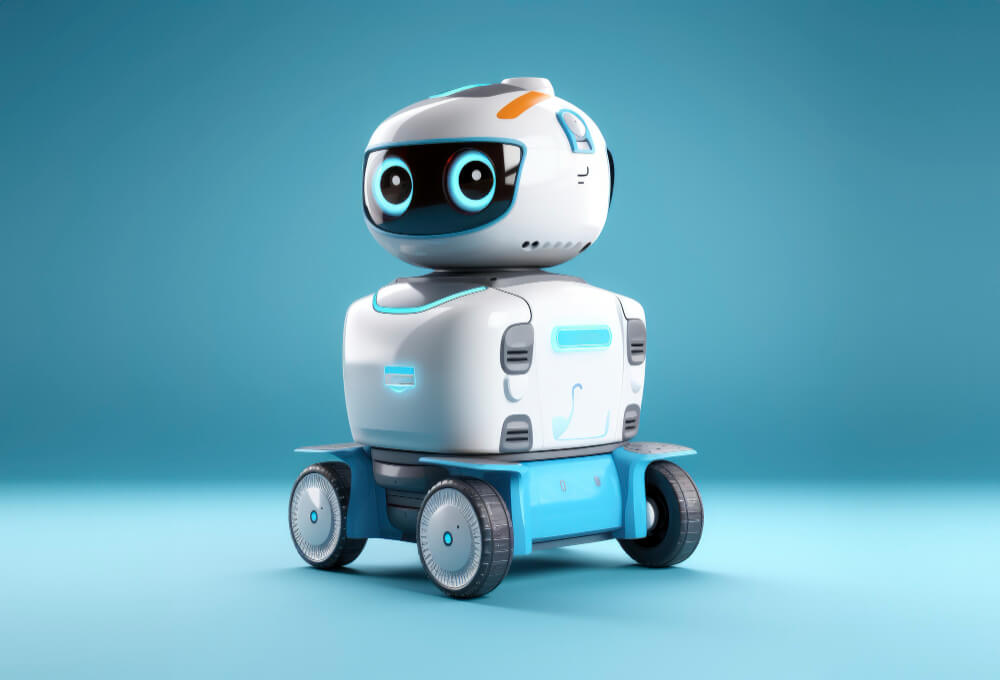
Future of AI in Customer Support: Chatbots, Virtual Assistants, and Beyond
Artificial Intelligence (AI) is no longer a futuristic concept—it’s reshaping customer support today. By blending natural language processing (NLP), machine learning (ML), and automation, AI transforms customer interactions into highly efficient, intelligent, and personalized experiences. AI-powered tools like chatbots and virtual assistants are transitioning from basic utilities into indispensable components of customer support strategies across industries.
The Rise of AI in Customer Support
Over the past decade, the role of AI in customer service has grown from simple rule-based bots to sophisticated AI ecosystems. Initially limited to FAQs and scripted replies, AI is now capable of processing vast amounts of unstructured data, understanding human emotions and intent, and adapting to context in real time. Companies now deploy AI to manage high query volumes, reduce human workload, deliver faster resolutions, and drive customer satisfaction.
Key Factors Driving AI Adoption:
Rising expectations for real-time, 24/7 support
Scalability of AI versus traditional support teams
Lower operational costs with higher efficiency
Continual advancements in NLP, ML, and AI models
Chatbots: The New First Line of Engagement
Chatbots have evolved from being basic tools to intelligent agents that can independently resolve issues, qualify leads, and perform tasks like order tracking and booking. Powered by AI, they analyze intent and sentiment, and provide contextual responses.
Why They Matter: Modern chatbots like Drift, Intercom, and Zendesk AI engage customers across multiple touchpoints (websites, apps, messaging platforms), answer common questions instantly, and escalate only when necessary. They:
Provide instant resolutions to FAQs
Reduce wait times and call center load
Offer personalized experiences using historical data
Maintain consistency across channels
For example, Domino’s Pizza uses a chatbot to take orders via Facebook Messenger, and H&M’s chatbot helps customers find and style clothing items based on preferences.
Virtual Assistants: Human-like Service at Scale
Virtual assistants take AI-driven support a step further by handling multi-step interactions that require memory, logic, and contextual awareness. Think of them as smart co-pilots capable of solving complex tasks while maintaining human-like conversations.
Key Features:
Conversational memory: Maintain context across sessions
Task execution: Handle bill payments, account updates, booking, and even tech support
Integrated intelligence: Work seamlessly with CRMs and support databases
Cross-platform functionality: Operate across voice, mobile, and desktop interfaces
One standout example is Bank of America’s “Erica”, which assists users in tracking expenses, paying bills, and suggesting financial actions based on behavior.
Human + AI Collaboration: Augmented Support Agents
AI isn’t here to replace human agents—it’s here to augment them. AI acts as a smart assistant that boosts efficiency, accuracy, and customer satisfaction. The hybrid model ensures that human agents focus on emotionally charged or complex cases while AI handles repetitive or predictable tasks.
How AI Supports Human Agents:
Smart suggestions: AI recommends responses in real time based on past interactions
Sentiment analysis: Flags customer frustration or urgency
Knowledge retrieval: Pulls up relevant help articles and case studies instantly
Multilingual support: Translates conversations in real time to support global customers
This collaboration reduces average handling time (AHT), increases first-contact resolution, and empowers agents to deliver higher-quality service.
Proactive and Predictive Support: The Next Evolution
The future of AI support is not just about answering queries—it’s about predicting them. AI-powered systems can analyze user behavior, transaction history, and usage patterns to detect issues before they occur.
Capabilities of Predictive AI in Support:
Pre-emptive troubleshooting: Identify and fix errors before customers report them
Behavior-based recommendations: Suggest upgrades, solutions, or preventive actions
Automated alerts: Warn customers about upcoming outages, renewals, or unusual activities
Telecom companies can notify users about bandwidth overuse and offer solutions in real time. E-commerce platforms can auto-alert customers about order delays and initiate refunds—without human involvement.
AI in Omnichannel Support Ecosystems
Today’s customers engage across channels—social media, apps, emails, live chat, and voice. AI unifies this experience by ensuring consistency and continuity across every platform.
Benefits:
Seamless channel-switching without losing context
Personalized support based on past behavior and preferences
Unified dashboards for support teams to monitor and respond efficiently
AI enables brands to build a cohesive support journey regardless of how or where customers reach out.
Challenges and Ethical Concerns
With great power comes great responsibility. As AI plays a bigger role in customer support, ethical considerations and potential drawbacks must be addressed.
Major Challenges Include:
Data privacy: Ensuring customer data is stored and used responsibly
Bias in AI models: Avoiding unfair treatment due to skewed training data
Transparency: Clearly communicating when customers are interacting with bots
Over-reliance on automation: Risk of alienating customers with too little human touch
To succeed, companies must design AI systems that are fair, transparent, and respectful of user rights.
Conclusion: AI as a Strategic Customer Support Partner
The integration of AI in customer support is not a temporary trend—it is a foundational shift. From handling basic queries with chatbots to managing complex interactions with virtual assistants, AI is becoming central to delivering exceptional support experiences.
In the coming years, AI will not only solve customer problems faster but also anticipate their needs, enabling brands to move from reactive to predictive and proactive customer service. Companies that invest in ethical, well-designed AI systems today will build the trust, loyalty, and operational advantage needed to thrive in tomorrow’s customer-centric economy.
AI isn’t just changing how support works—it’s redefining what’s possible.

